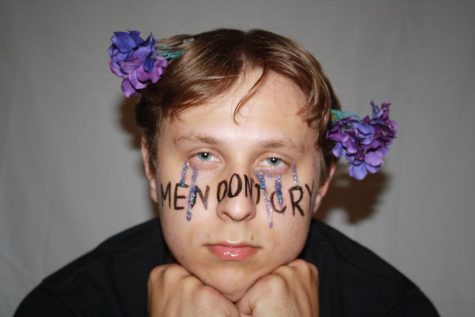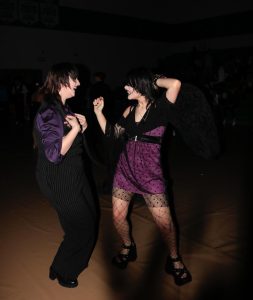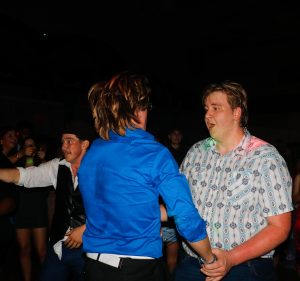Real men don’t cry (Issue 3, pg. 1)
October 28, 2021

Man up. Don’t be a wuss. Suck it up.
These toxic phrases are all too familiar to men.
“Traditionally, it’s always been, men are expected to be tough and strong and brave and courageous,” teacher Shawn Pearson said.
Women cry emotional tears about 30 to 64 times a year, while a man cries 5 to 17 times a year, according to the American Psychological Association.
This gaping disparity doesn’t come without reason.
“A lot of people feel like guys are supposed to be tough and not show our emotions,” junior Parker Chronister said. “People think we’re weird if we do. At least they do that most of the time.”
Vulnerability is used as a weapon against men rather than proof of their multifaceted existence.
“You know sometimes you… got to hold those tears in and keep pushing on in front of people,” senior Jameer Clemons said. “But… when you are alone, the tears fall down and cry. Man, it’s just real life.”
Men often feel alone and judged by society because of this.
“Crying is a sign of weakness and vulnerability because in the past, men were supposed to be the strong leader,” senior Cody Crist said.
However, this philosophy doesn’t apply to women.
“Men are supposed to be strong and girls can cry and do whatever,” senior Xhavier Vaquera said.
Pearson speculated that this cultural phenomenon could be due to movies and television.
“Rambo, Rocky, The Rock, all those movie characters that boys see and idolize and want to live to, that aren’t necessarily even actually attainable type characters,” Pearson said.
Men of all ages feel this weight on their shoulders to carry society’s expectations.
“It’s been a part of our culture for a long time. And so ourgrandfathers were raised ‘suck it up buttercup,’ ” counselor Daniel Harrison said.
These standards can become detrimental for men of color.
“They expect me to be hard and strong, like a Black man should be,” Clemons said. “It goes all the way back to slavery because you had to be strong and do your job, like you couldn’t do nothing but work.”
Junior Agness Mbezi wants to turn a new leaf andget rid of this stigma.
“Everyone should be able to be vulnerable,” Mbezi said. “Vulnerability creates honesty.”






